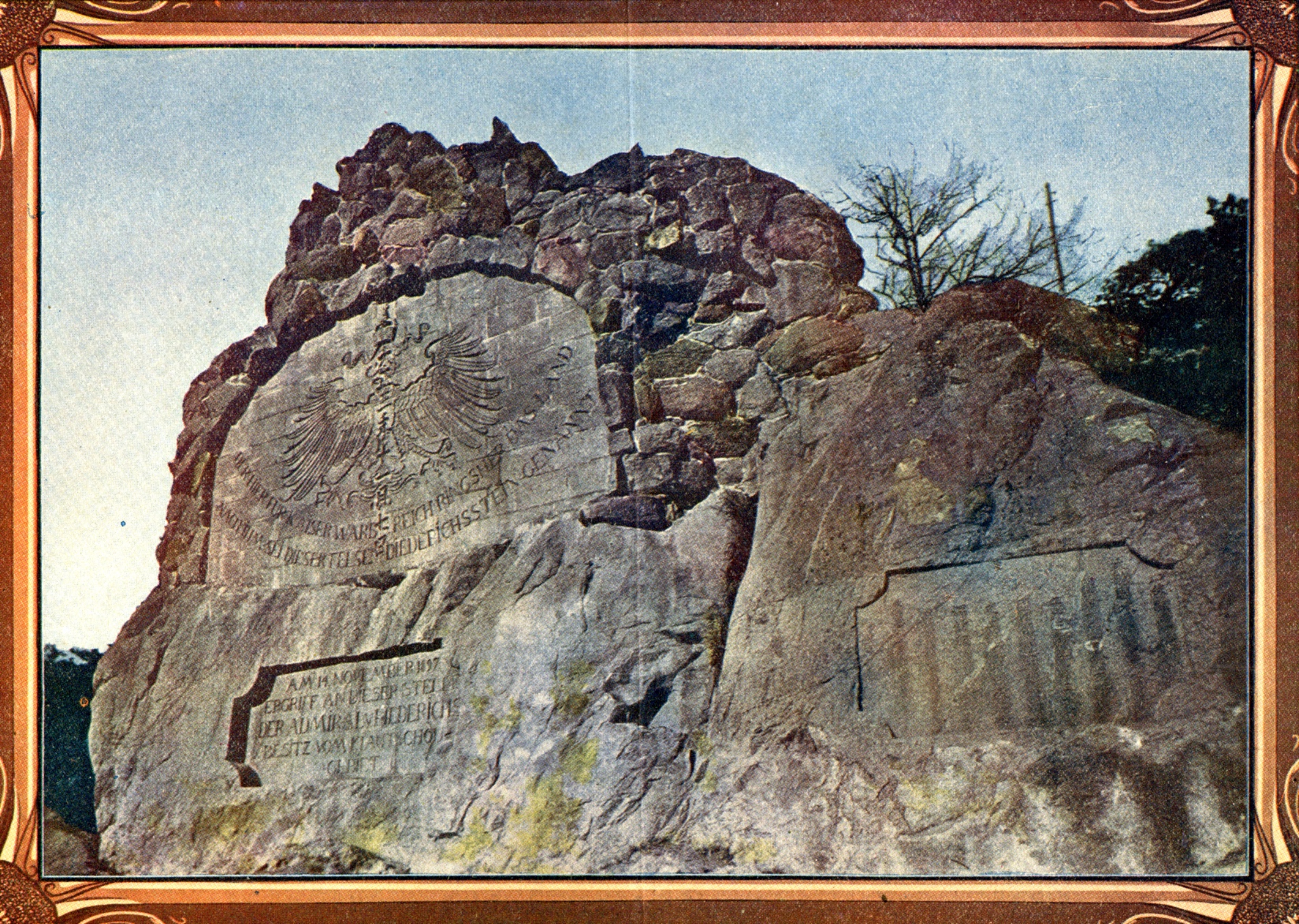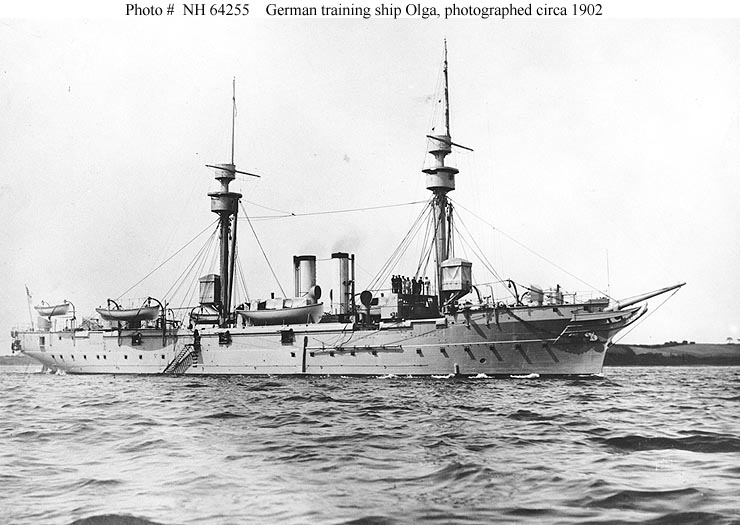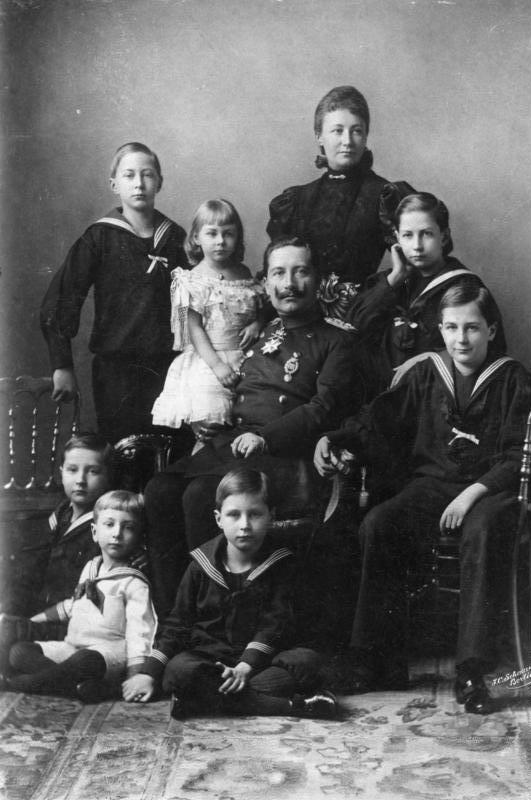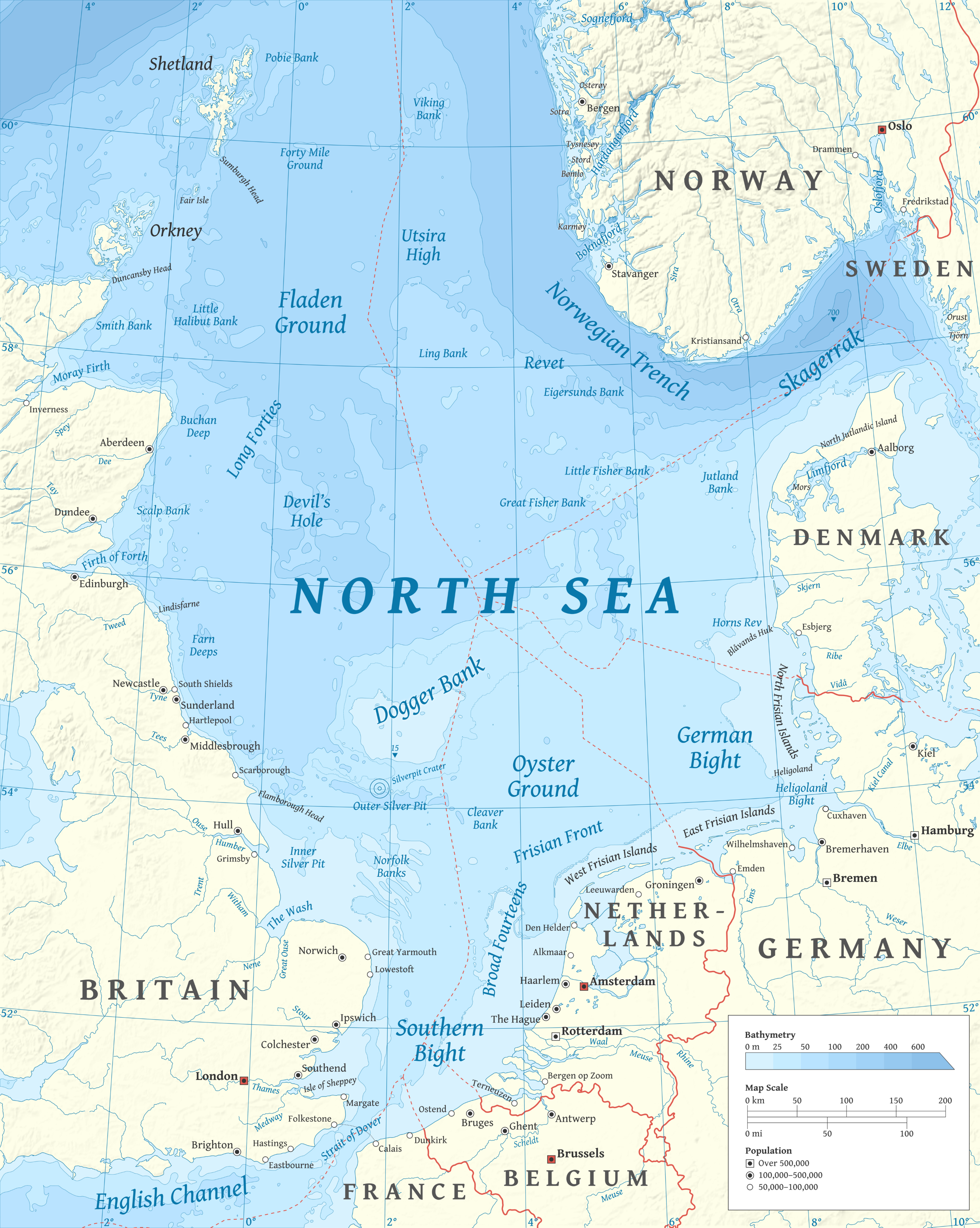|
Admiralty Staff (Imperial Germany)
The German Imperial Admiralty Staff (german: Admiralstab) was one of four command agencies for the administration of the Imperial German Navy from 1899 to 1918. While the German Emperor Wilhelm II as commander-in-chief exercised supreme operational command and control of the naval forces, the military staff was split into the Admiralty, the Naval Office, the Naval Cabinet, and the Inspector-General. The command structure had a negative impact on German naval warfare in World War I, as a professional head of the Imperial Navy, similar to the First Sea Lord, was not established until August 1918. After the war and the German Revolution of 1918–19, the Admiralty Staff became subordinate to the Naval Office and was finally disestablished by order of the German President. History After the German unification of 1871, a united Imperial Navy was established as successor of the Prussian Navy and the North German Federal Navy, from 1 January 1872 under the authority of the Germa ... [...More Info...] [...Related Items...] OR: [Wikipedia] [Google] [Baidu] |
German Imperial Naval High Command
The German Imperial Naval High Command () was an office of the German Empire which existed from 1 April 1889 until 14 March 1899 to command the German Imperial Navy. A similarly named office existed in the Prussian Navy and the '' Kriegsmarine'' of Nazi Germany. After the dissolution of the German Imperial Admiralty (Kaiserliche Admiralität) on 1 April 1889, the Imperial Naval High Command, the Office of the Inspector-General of the Navy, and the Imperial Naval Office (Reichsmarineamt) were established as successor institutions. The Imperial Naval High Command was headed by a commanding admiral, directly subordinate to the emperor, Wilhelm II of Germany. With the same obligations and rights as a commanding general of the army, this admiral fulfilled the duties of a Chief of the Naval Staff. Under instructions from the emperor, he commanded all naval units at sea and ashore. When the German Emperor decided to take over the supreme command of the Navy himself on 14 March 1899, t ... [...More Info...] [...Related Items...] OR: [Wikipedia] [Google] [Baidu] |
President Of Germany (1919–1945)
The president of the Reich (german: Reichspräsident) was the German head of state under the Weimar constitution, which was officially in force from 1919 to 1945. In English he was usually simply referred to as the president of Germany. The Weimar constitution created a semi-presidential system in which power was divided between president, cabinet and parliament. The ''Reichspräsident'' was directly elected under universal adult suffrage for a seven-year term. It was intended that the president would rule in conjunction with the Reichstag (legislature) and that his emergency powers would be exercised only in extraordinary circumstances, but the political instability of the Weimar period, and a paralysing factionalism in the legislature, meant that the president came to occupy a position of considerable power, capable of legislating by decree and appointing and dismissing governments at will. In 1934, after the death of President Hindenburg, Adolf Hitler, already chancellor, a ... [...More Info...] [...Related Items...] OR: [Wikipedia] [Google] [Baidu] |
Hugo Von Pohl
Hugo von Pohl (25 August 1855 – 23 February 1916) was a German admiral who served during the First World War. He joined the Navy in 1872 and served in various capacities, including with the new torpedo boats in the 1880s, and in the ''Reichsmarineamt'' (Imperial Navy Office) in the 1890s. He eventually reached the rank of ''Vizeadmiral'' and held the position of Chief of the Admiralty Staff in 1913. He commanded the German High Seas Fleet from February 1915 until January 1916. As the commander of the surface fleet, he was exceedingly cautious, and did not engage the High Seas Fleet in any actions with the British Grand Fleet. Pohl was an outspoken advocate of unrestricted submarine warfare, and he put the policy into effect once he took command of the fleet on 4 February 1915. Seriously ill from liver cancer by January 1916, Pohl was replaced by Reinhard Scheer that month. Pohl died a month later. Biography Early career Hugo von Pohl was born in Breslau, Prussian Silesia ... [...More Info...] [...Related Items...] OR: [Wikipedia] [Google] [Baidu] |
August Von Heeringen
August von Heeringen (26 November 1855 – 29 September 1927) was a Prussian admiral of the German Empire. He headed the Imperial Navy News Office (Nachrichtenbureau des Reichsmarineamts) and served as the Chief of the German Naval General Staff ( Admiralstab) 12 March 1911 – 31 March 1913, and was present at the famous War Council of 8 December 1912. Early life Heeringen was born in Kassel in the Electorate of Hesse. He was the son of Josias von Heeringen (1809–1885) and his wife Ehefrau Karoline von Starkloff (1817–1871). His elder brother Josias von Heeringen was a general. Career He worked with leaders of the German Empire such as Kaiser Wilhelm II, and admirals Alfred von Tirpitz, Georg Alexander von Müller, Gustav von Senden-Bibran, and Friedrich von Hollmann to build a strong German navy. He saw it as a means to secure Germany's position on the world stage. Also, he saw a great national navy as a unifying force for an empire still divided into various kingdoms. ... [...More Info...] [...Related Items...] OR: [Wikipedia] [Google] [Baidu] |
Otto Von Diederichs
Ernst Otto von Diederichs (7 September 1843 – 8 March 1918) was an Admiral of the Imperial German Navy (''Kaiserliche Marine''), serving in the Prussian Navy and the North German Federal Navy. Early life Diederichs was born 7 September 1843 in Minden, Westphalia, Kingdom of Prussia (now in North Rhine-Westphalia, Germany). He entered the Prussian naval officer candidate program along a circuitous route, with an incomplete secondary education, a short stint as a Prussian army cadet and service in the merchant marine. After Naval School graduation at Kiel and Atlantic training voyages on the Prussian sail frigate SMS ''Niobe'', he was commissioned ''Unterleutnant zur See'' ieutenant JGin 1867. He served a brief tour aboard the royal yacht ''Grille''. During the Franco-Prussian War of 1870-1871 he commanded the coastal gunboat SMS ''Natter''. Although a French fleet maneuvered in the North Sea where ''Natter'' was deployed, "the French battle plan had little impact on Diederich ... [...More Info...] [...Related Items...] OR: [Wikipedia] [Google] [Baidu] |
Felix Von Bendemann
Felix von Bendemann (8 August 1848 – 31 October 1915) was an Admiral of the German Imperial Navy (Kaiserliche Marine). Early life Bendemann was born in Dresden, Kingdom of Saxony. He was the son of the painter Eduard Julius Friedrich Bendemann (1811–1889) and Lida Schadow, who was the daughter of the sculptor Johann Gottfried Schadow. The painter Rudolf Bendemann was his brother. Naval career Bendemann and three brothers served in the Franco-Prussian War in 1870–71. He was in the Prussian Navy as an officer on the gunboat in Key West when the war began. On 23 October the news of the outbreak of war reached the ship's captain, Eduard von Knorr. The SMS ''Meteor'' sailed for Cuba where, on 9 November they fought the only serious naval battle of the war with the French aviso ''Bouvet'' commanded by capitaine de frégate Alexandre Franquet. After an artillery exchange and an attempts by the ''Bouvet'' to ram the ''Meteor'', both ships were incapacitated. Altho ... [...More Info...] [...Related Items...] OR: [Wikipedia] [Google] [Baidu] |
German Naval Laws
The Naval Laws (german: Flottengesetze, "Fleet Laws") were five separate laws passed by the German Empire, in 1898, 1900, 1906, 1908, and 1912. These acts, championed by Kaiser Wilhelm II and his Secretary of State for the Navy, Grand Admiral Alfred von Tirpitz, committed Germany to building up a navy capable of competing with the Royal Navy of the United Kingdom. German desires and the strategic debate The Kaiser had long wanted a large naval force to assure Germany of what he called " a place in the sun". A large German navy could assist in German attempts to attain colonies, as well as further the country's economic and commercial interests elsewhere in the world. He was determined to make his country a colonial power in Africa and the Pacific. He was also a very militaristic man, and wished to increase the strength of the German armed forces; in particular he wanted to develop a navy that could match the British Royal Navy. As he wrote in his autobiography: Though Wilhel ... [...More Info...] [...Related Items...] OR: [Wikipedia] [Google] [Baidu] |
Reichstag (German Empire)
The Reichstag () of the German Empire was Germany's lower house of parliament from 1871 to 1918. Within the governmental structure of the Reich, it represented the national and democratic element alongside the federalism of the Bundesrat and the monarchic and bureaucratic element of the executive, embodied in the Reich chancellor. Together with the Bundesrat, the Reichstag had legislative power and shared in decision-making on the Reich budget. It also had certain rights of control over the executive branch and could engage the public through its debates. The emperor had little political power, and over time the position of the Reichstag strengthened with respect to the Bundesrat. Reichstag members were elected for three year terms from 1871 to 1888 and following that for five years. It had one of the most progressive electoral laws of its time: with only a few restrictions, all men 25 and older were allowed to vote, secretly and equally. The Reichstag met throughout the First Wo ... [...More Info...] [...Related Items...] OR: [Wikipedia] [Google] [Baidu] |
Anglo-German Naval Arms Race
The arms race between Great Britain and Germany that occurred from the last decade of the nineteenth century until the advent of World War I in 1914 was one of the intertwined causes of that conflict. While based in a bilateral relationship that had worsened over many decades, the arms race began with a plan by German Admiral Alfred von Tirpitz in 1897 to create a fleet in being to force Britain to make diplomatic concessions; Tirpitz did not expect the Imperial German Navy to defeat the Royal Navy. With the support of Kaiser Wilhelm II, Tirpitz began passing a series of laws to construct an increasing number of large surface warships. The construction of in 1906 prompted Tirpitz to further increase the rate of naval construction. While some British observers were uneasy at German naval expansion, alarm was not general until Germany's naval bill of 1908. The British public and political opposition demanded that the Liberal government meet the German challenge, resulting in th ... [...More Info...] [...Related Items...] OR: [Wikipedia] [Google] [Baidu] |
Alfred Von Tirpitz
Alfred Peter Friedrich von Tirpitz (19 March 1849 – 6 March 1930) was a German grand admiral, Secretary of State of the German Imperial Naval Office, the powerful administrative branch of the German Imperial Navy from 1897 until 1916. Prussia never had a major navy, nor did the other German states before the German Empire was formed in 1871. Tirpitz took the modest Imperial Navy and, starting in the 1890s, turned it into a world-class force that could threaten Britain's Royal Navy. However, during World War I, his High Seas Fleet proved unable to end Britain's command of the sea and its chokehold on Germany's economy. The one great engagement at sea, the Battle of Jutland, ended in a narrow German tactical victory but a strategic failure. As the High Seas Fleet's limitations became increasingly apparent during the war, Tirpitz became an outspoken advocate for unrestricted submarine warfare, a policy which would ultimately bring Germany into conflict with the United States. By ... [...More Info...] [...Related Items...] OR: [Wikipedia] [Google] [Baidu] |
Albrecht Von Stosch
Albrecht von Stosch (20 April 1818 – 29 February 1896) was a German General of the Infantry and admiral who served as first chief of the newly created Imperial German Navy from 1872 to 1883. Life Born in Koblenz, he was a cousin of Hans Stosch-Sarrasani, the founder of the Circus Sarrasani. He was the third son of Prussian general Hermann Ferdinand Stosch, who was a traditional military man who had a nationalistic feelings. Just like his father, Stosch was conscious of the tradition of duty and service, and Prussian military heritage was a strong political opinion of his. After being educated in state schools and a Gymnasium, in 1829 Stosch was admitted to the Cadet corps. In 1835 Stosch, aged seventeen, was appointed as second-lieutenant in the Prussian Army. He eventually became a General Staff officer. Stosch participated in the Austro-Prussian War as ''Oberquartiermeister'' of the Second Army. After the Franco-Prussian War, Stosch was also appointed as an admiral ... [...More Info...] [...Related Items...] OR: [Wikipedia] [Google] [Baidu] |
German Imperial Admiralty
The German Imperial Admiralty (german: Kaiserliche Admiralität) was an imperial naval authority in the German Empire. By order of Kaiser Wilhelm I the Northern German Federal Navy Department of the North German Confederation (1866–71), which had been formed from the Prussian Navy Department (Marineministerium), became on 1 January 1872 the German Imperial Admiralty (''Kaiserliche Admiralität''). The head of the Admiralty (Chef der Admiralität) administered the Imperial Navy under the authority of the imperial chancellor and the supreme command of the Emperor (''Kaiserliche Kommandogewalt''). It lasted until 1889, undergoing several reorganizations, but proved an impractical arrangement given the constant growth and the expansion of the Imperial Navy. Finally it was abolished in April 1889 and its duties divided among three new entities: German Imperial Naval High Command (''Kaiserliches Oberkommando der Marine''), the Imperial Naval Office (''Reichsmarineamt''), and the ... [...More Info...] [...Related Items...] OR: [Wikipedia] [Google] [Baidu] |







